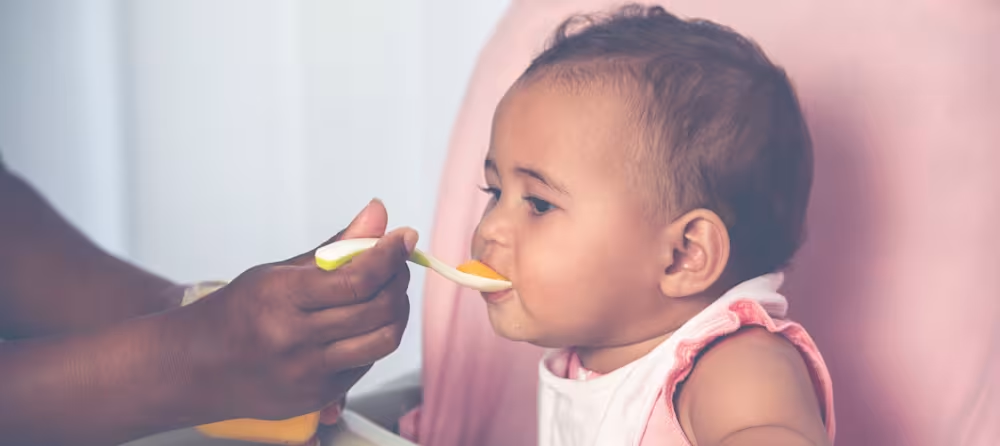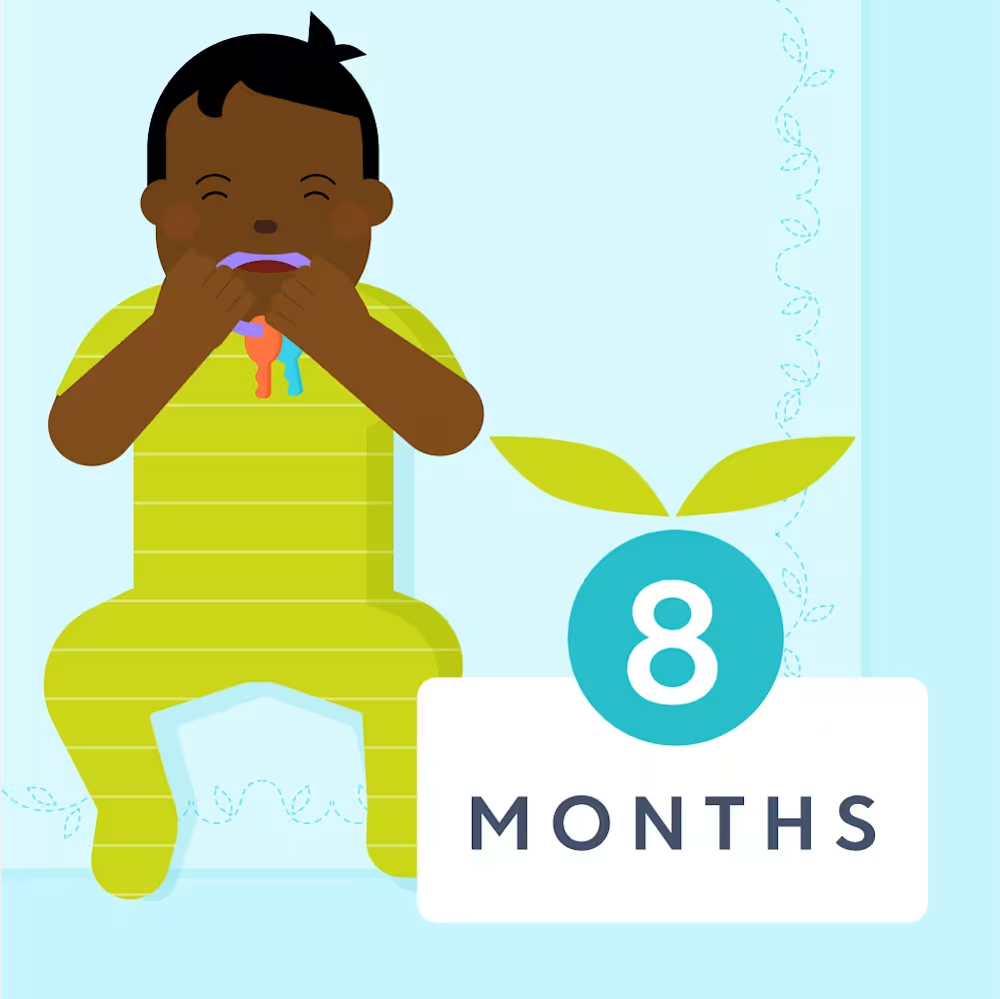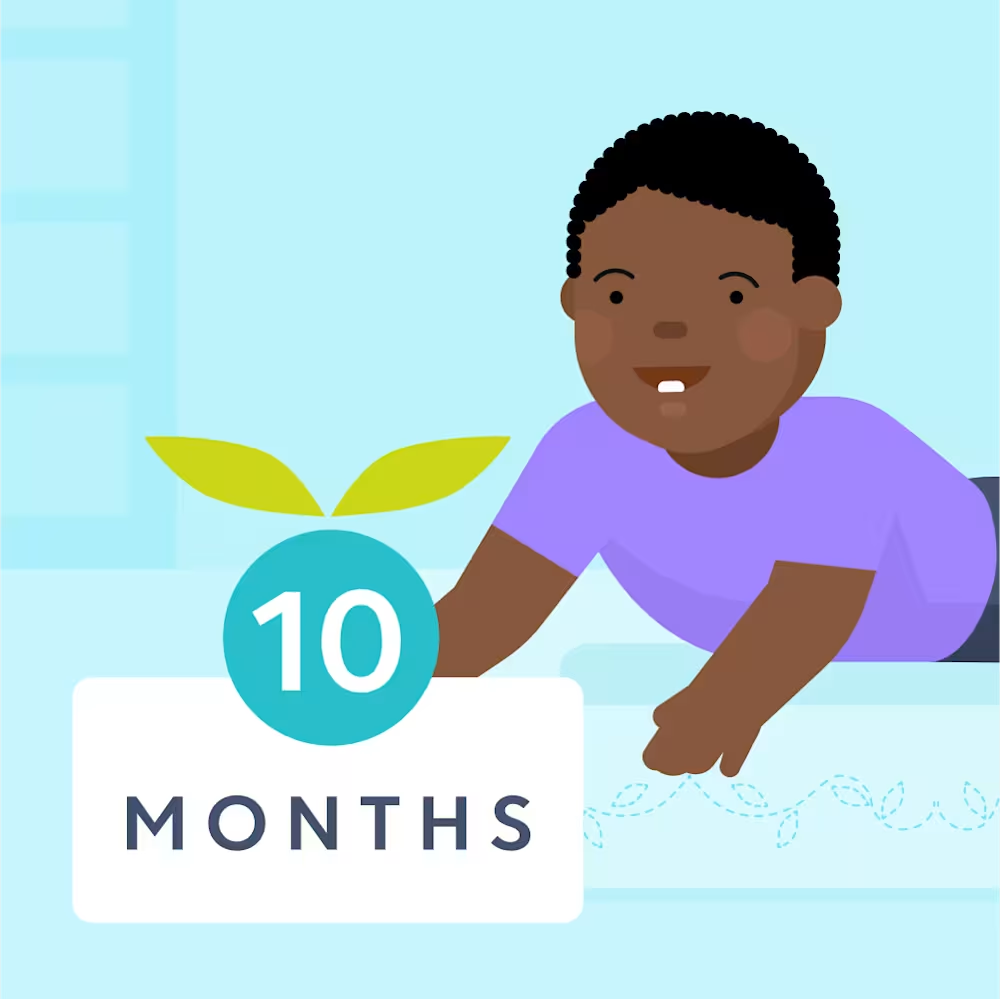9 month old sleep schedule: Bedtime and nap schedule
Updated Dec 15, 2025
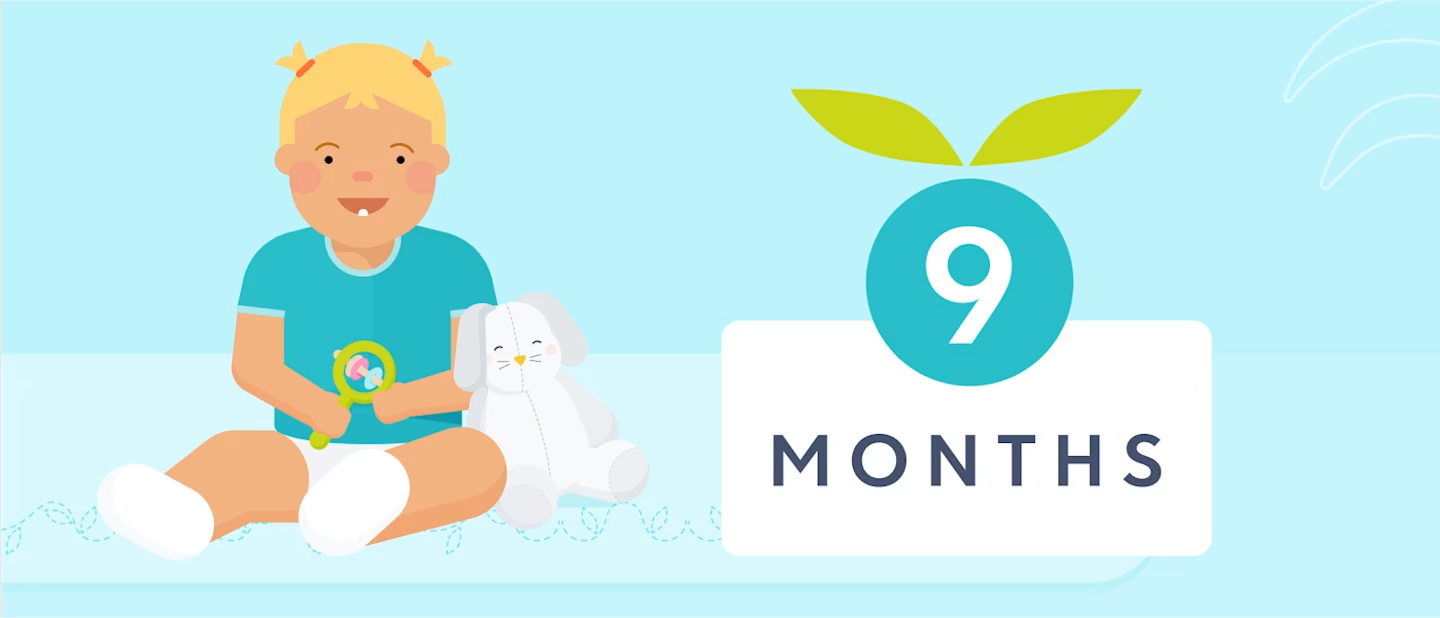
At 9 months, babies often experience rocky sleep. They’re growing and developing so fast! Factors like new motor skills, transitioning from 3 to 2 naps, and teething often lead to sleep troubles at this age. While normal, it’s frustrating for parents!
In this article, we’ll walk you through common sleep challenges at 9 months, give you a sample 9 month sleep schedule, and provide signs that your little one may be ready to drop a nap.
How much should a 9 month old sleep?
At 9 months of age, we’ll continue to aim for around 14 hours of total sleep in a 24-hour period. That typically works out to 11 - 12 hours at night and 2 - 3 hours during the day over 2 naps. Most children do best with a set schedule that allows for 2.75 - 3.5 hours of awake time between sleep periods at this age.
Remember baby sleep requirements can vary and there's a range of what's considered normal and healthy. Don't be discouraged if your child's sleep doesn't match up to the suggested hours and keep in mind it's normal that. The recommended hours are just a general guideline. It's equally important to assess your child's mood and energy levels when determining if they're getting the rest they need.
Here's a quick overview of what you may expect when it comes to 9 month olds and sleep. Note that these figures are averages and should be used as guidelines.
Top sleep tips for 9 month olds
If you often find your baby sitting, standing, or cruising in their crib when they should be sleeping, you’re not alone. When babies are learning a new skill, they often prefer to practice it instead of sleep. While it can be frustrating to see your baby play when they should be sleeping we don’t recommend repeatedly intervening. That can backfire and lead to even more sleep challenges!
Instead, allow them to explore and wind down on their own. Give your baby some space between attempts to intervene, resettling every 10 - 15 minutes or so until they’re ready for sleep.
Sample 9 month old sleep schedule
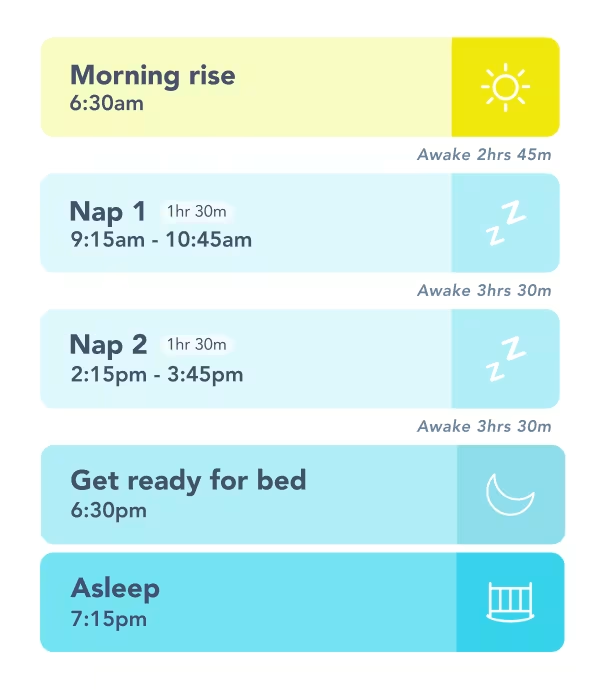
Note: Sleep needs vary by child and this chart should be viewed as an example.
Morning rise: 6:30 AM
Wake window before first nap: 2.75 hours
First nap: 9:15 AM - 10:45 AM (1.5 hour nap)
Wake window before second nap: 3.5 hours
Second nap: 2:15 PM - 3:45 PM (1.5 hour nap)
Get ready for bed: 6:30 PM
Wake window before bedtime: 3.5 hours
Asleep: 7:15 PM
Naptime schedule for a 9 month old
How long should a 9 month old nap?
Most babies this age do best with per day for a total of 2 - 3 hours of daytime sleep. Each nap should be at least 60 minutes long.
How many naps for a 9 month old?
Most babies will be ready to drop their third nap by 9 months and move to a 2-nap schedule with an earlier bedtime. If your baby is still taking 3 naps a day, they’ll likely transition to 2 naps soon.
Signs that a baby is ready to drop a nap include:
shorter naps
resisting one of the naps (particularly the last one)
resisting bedtime
consistently sleeping less than 10 hours a night
Here’s what a typical day may look like at this age:
2-nap schedule
Bedtime for a 9 month old
What time should a 9 month old go to bed?
A typical bedtime at this age is 12 - 13 hours after waking in the morning. For example, if your baby wakes around 7:00 AM, then you’ll want to target a 7:00 PM - 8:00 PM bedtime. While most babies do well with a consistent “” bedtime (e.g., aiming for a 7:30 PM bedtime each night), this can be challenging if morning wake times or nap durations fluctuate quite a bit.
If your baby tends to get overtired easily and wakes more often at night when they get too tired, set bedtime for no more than 3.5 hours after the second nap. Try to avoid a bedtime earlier than 6:00 PM, as that can lead to early rising issues.
Why does my 9 month old keep waking up at night crying?
At 9 months, your baby may be waking up and calling out to you due to factors like teething, new development milestones, or wanting help falling back to sleep. They may be used to receiving help to fall asleep at bedtime and want the same comfort overnight.
If rocking, patting, or feeding your little one to sleep is working for you, there’s nothing wrong with continuing. However, these sleep associations can lead to frequent night wakes and poor sleep for children and parents. If this sounds familiar and you’re looking for more sleep support, consider submitting for a personalized Sleep Plan via .
Is there a sleep regression at 9 months old?
There’s no magical date on the calendar to determine a sleep regression. Periods of bumpy sleep can happen anytime! However, we commonly see new sleep challenges pop up around 9 months due to developmental milestones (like crawling), teething, illness, and travel.
Can my 9 month old sleep with a pacifier?
It’s generally safe for your baby to sleep with a pacifier at 9 months. However, at this age, your little one may cry out for you to replace it if it falls out while they’re sleeping. They are likely just developing hand-eye coordination to replace it on their own, so we suggest practicing guiding their hand to their mouth during awake times. With repetition (and perhaps a couple of pacifiers in their crib), they may be able to find their paci and replace it without assistance.
Note that the AAP does not recommend forcing your baby to take a pacifier or using it to delay (or replace) feedings that are vital for growth and brain development [].
Can I sleep train a 9 month old?
Babies are typically developmentally ready for sleep training at . There are various to consider if you’re interested in teaching your baby to fall asleep on their own. Some techniques are more gradual and take a bit longer to see results. Others prioritize speed and results. It’s up to you to decide if sleep training is the right fit for your family!
Can a 9 month old sleep on their stomach or side?
The AAP recommends that babies at 9 months always be placed on their backs in their sleep space []. However, at this age, your baby is likely rolling both ways comfortably so it’s OK to let them sleep on their side or stomach if they move into those positions while sleeping.
Should I swaddle my 9 month old?
By 9 months, swaddling should be fully phased out. At this age, babies are often on the move and advancing in their independent sleep skills. Continuing to swaddle can limit their ability to self-soothe and settle on their own, which are important skills for smoother sleep.
What are the developmental milestones for a 9 month old?
Here are some of the things your baby may try at 9 months. Keep in mind there’s a range of normal when it comes to development and how fast your little one will learn and grow. It’s OK if they’re not doing all of these things quite yet!
Gets in and out of sitting on their own
Creeps/crawls (note some babies never crawl!)
Starts to pull to stand
May take steps while holding onto support (cruising)
Picks up small objects with thumb and index finger (pincer grasp)
Tries to hold a bottle or spoon while feeding themselves
Connects meaning to babbled words like “mama” and “dada”
Understands simple instructions like “come here,” especially when coupled with a gesture
Copies of movements and sounds
Shows feelings with facial expressions and gestures
Displays signs of separation anxiety
Does a 9 month old need to eat during the night?
, many babies can sleep for long stretches overnight without feedings. However, some babies sleep better (and longer) with an early morning feeding, often between 3:00 AM and 5:00 AM. If you have specific questions about your little one’s nutritional needs at 9 months, reach out to their pediatrician or lactation consultant for guidance.
Takeaway
At 9 months, we’ll continue to aim for around 14 hours of total sleep in a 24-hour period. That typically works out to 11 - 12 hours at night and 2 - 3 hours during the day over 2 naps.
Babies typically take 2 naps per day at 9 months or are working on dropping the third afternoon nap. Most children do best with a set schedule that allows for 2.75 - 3.5 hours of awake time between sleep periods at this age.
While there’s not a predetermined “9 month sleep regression,” around this time it’s common for children to have a period of bumpy sleep due to factors like teething, new mobility, and other developmental milestones.
Curious about what lies ahead in the coming month? Check out our article to see what you might experience once your baby is on a . Look back at an to see how far your little one has come.
In general, 9 month olds are growing and changing so much! If you're curious about milestones in other areas, like speech and motor skills, check out what you may expect from .
Share article:
Note: The content on this site is for informational purposes only and should not replace medical advice from your doctor, pediatrician, or medical professional. If you have questions or concerns, you should contact a medical professional.
5 Sources
Share article:






